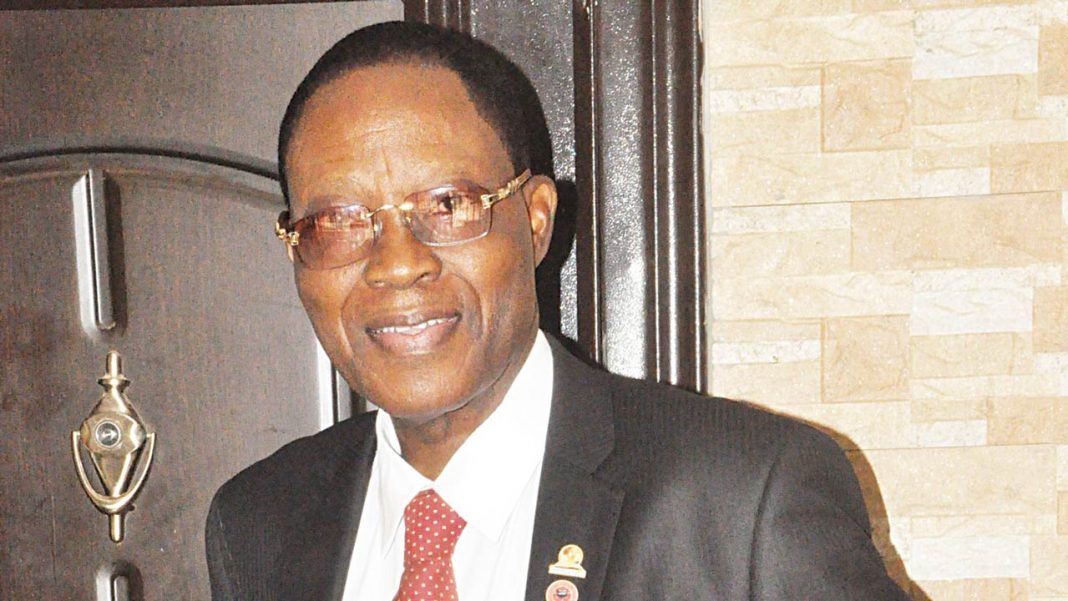
Dr. Peter Olu Olayiwola is the President and Chairman, Certification Board Computer Forensics Institute, Nigeria (CFIN), In this interview with BANKOLE ORIMISAN, he spoke on the imperatives of mobile and computer forensics in the investigation of espionage, internal terrorism and other germane industry issues.
Tell us the recent developments in the field of mobile and digital forensics in Nigeria?
As you know, digital or computer forensics is the process of acquiring, identifying, preserving, analysing and presenting digital evidence in a manner that is legally acceptable, using an approved methodology, and for legal purpose. It is an autopsy of a computer or network or any electronic device to uncover digital evidence of a crime.
In Nigeria, there has been great interest expressed by all the police and other law-enforcement agencies, the military, anti-corruption agencies, the financial institutions, state governments and private sector organisations.
Digital, Mobile and Computer forensics laboratories are springing up in the military, law-enforcement agencies, financial sector, private sector organisations, etc. More and more officers of these organisations have been trained and inducted by the Computer Forensics Institute, Nigeria (CFIN), as Certified Digital and Computer Examiners. Some of these officers shall be inducted at this year’s induction ceremony of the Institute scheduled for 18th October, 2016, during this year’s conference in Lagos.
To what extent has digital, mobile and computer forensics been used in Nigeria in recent time to ensure the security and validity of our votes?
As you know, computers and electronic devices apart being targets or tools, of crimes, can also be containers of evidence or a combination of these. Hence, digital, mobile and computer forensics has been useful in the investigation of espionage, internal terrorism (such as bomb attacks), kidnapping, treason, attacks against national critical infrastructure, cyber terrorism, cyber warfare, identity theft, hacking, financial fraud, human resources/payroll fraud, fraudulent websites and mails. It is also used for recovering evidence after formatting hard drive or after evidence deletion, blackmails, theft, narcotics, homicide investigation, forgery, electoral fraud, threats and malicious calls, extortion, computer security violations, child pornography. Others are corporate or governmental policy violation, perjury, viruses/worms/trojans/malware, industrial espionage, hacking and other crimes. Over 90 per cent of all crimes today can be solved by digital, mobile/phone and computer forensics.
Could you tell us those expected to attend the 2016 International Digital and Mobile Forensics conference in Lagos, and how is this relevant to our present economy?
We are expecting both renowned local and international speakers in the field of digital, mobile and computer forensics, and in cyber security.Delegates expected at the conference include: top federal and government officials, law-enforcement officers, military officers, investigators, prosecutors, intelligence officers, judges, and magistrates. Others are legislators, defence attorneys, information technology officers, accountants, auditors, administrators, engineers, bankers, operations officers, the academia and other individuals interested in pursuing a career in cyber security, digital and computer forensics.
The relevance of this conference to Nigeria is expressed in its theme which is: Digital and Mobile Forensics: Tools for Terrestrial and Cybercrime Investigation, Security and Intelligence. The three-day conference is planned to deliver just that. In addition, it will open the eyes of many young graduates seeking a profession, who can become Certified Digital, Mobile and Computer Forensics Examiner, who can work as independent Forensics Examiner on the defence side even if not employed by any government agency. The participants shall also be exposed to the latest breakthroughs in digital forensics tools at this conference.
How far has the Evidence Act 2011 been able to advance the course of electronic evidence in Nigeria?
Digital or electronic evidence is any data stored or transmitted using a computer or similar electronic device that support or refute a theory of how an offence occurred or that address critical elements of the offence such as intent and alibi. The Evidence Act 2011, in its Section 258 defines “computer” as any electronic device for storing and processing of data and information. In Section 84 of the Act, it declares all computer-generated evidence as admissible, so far certain conditions specified in the section are met. Without this Act as amended, the fight against corruption would have been impossible. Remember that all human activities are mainly electronic these days. All financial transactions and payments are made electronically and the modern societies virtually live on their mobile and hand-held devices. These devices are gold-mines for electronic evidence. The Evidence Act, 2011 has made admissible bank statements and other computer-generated evidence that were rejected by the courts prior to the enactment of the Act.
What are the challenges facing law enforcement agencies, lawyers and judiciary in the implementation of the Cybercrime Act 2015?
The Act, which criminalises many acts before its enactment were not punishable in any law court, has a number of implementation challenges.Chief among these are: first, most law-enforcement agents are not trained in the technologies and in digital forensics; therefore, they need to be trained before they can implement the Act.
You can’t give what you don’t have. Presently, we have more cyber criminals than cyber police. Second, these officers do not have the equipment, software, tools and kits or the digital forensic laboratories to conduct their investigations. Efforts are now being made to address this gap. Third, internet crimes span multiple jurisdictions. So, international cooperation is required in the investigation of cybercrime. Fourth, little awareness has been created about the Act so far. Fifth are budget constraints. The interests being shown and the efforts being made show that the country is gradually imbibing the digital forensics mode of investigation with its concomitant efficiency and effectiveness in investigation of crimes. We appeal to government to do more in this area.
What effort is your institute making to see that digital and mobile forensics is deeply rooted in Nigeria?
The Computer Forensics Institute since 2008 has continued to conduct two types of training, namely, awareness training and certification training.We have trained and certified professional digital and mobile forensics examiners for virtually all the law-enforcement agencies, the military, governments, private sector organisations, universities and private
individuals.
Each year of the past five years, we have held an annual Digital, Mobile and Computer Forensics Conference to deepen the understanding of Nigerians in this new field. We are also partnering with organizations to assist them in digital and computer forensics.
Are there universities that teach digital and mobile forensics in Nigeria?
A number of universities in Nigeria do teach courses in the forensic sciences. However, to date, no university in Nigeria has a full-fledged digital and mobile forensics curriculum as the one provided by the Computer Forensics Institute in its certification programme. We shall be glad to partner with universities in Nigeria to commence degree programmes in this field. This will surely enhance the growth of this new profession in Nigeria.
